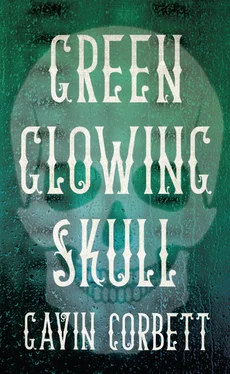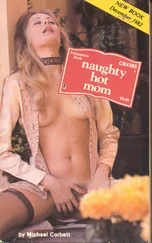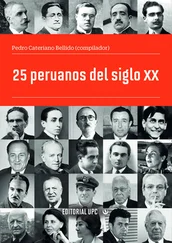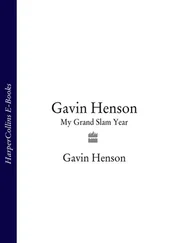They went into the Chew-butter Cracknell Emporium on Times Square, a multi-storey candy store themed around the candy-shell-coated chocolate candy. Flags of the world were assembled from variously coloured sweets in Perspex display panels. When she asked him which one was the Irish flag and he could not find it, he had a go at assembling one himself, on a huge plastic tray, from fistfuls of green and yellow sweets he scooped out of tubs. Not having any whites to hand, he tried to make the flag of another time — the Erin go bragh standard of romantics and poets, complete with fiddly detailing: harp, sprigs of shamrock and lettering. It would be a mess before he even started, he knew it. They laughed again. What was he trying to do? she asked. A store assistant approached them, telling Rickard he would pay for the upwards of two pounds of candy he had molested, and they ran from the shop with feints and whirls, pausing only so that Rickard could rub the green and yellow dye off his fingers on a man or woman dressed as a giant Chew-butter Cracknell, and then they joined hands out on the street and hurried onwards like schoolchildren.
They jumped on a subway train, changed trains, jumped out again, jumped back in. They exited at Columbus Circle, and entered Central Park. They spoke gushingly and vaguely about flowers and the beauty of New York in the springtime. Finally Rickard resolved to find the statue of John McCormack he had heard was in the park. He had no idea where exactly it might be; they asked questions, were met with bemused faces or replies (‘John Mac Cortlandt?’), and pushed on regardless, Rickard determining that they would find it by chance or be led there by a celestial finger. They never found it; but during their criss-crossing of the lower park he told her about this great singing count they were searching for, and many other things. Of McCormack, he pretended that he was more of an admirer than he really was, and that his interest in the singer was lifelong. He made up a life story for him too, or filled with fiction the yawning gaps between the few facts that he knew. He sang her lines from songs. The wind in the wall it is whistling your name/And giving a sound to the cause of your fame. She asked him if he spoke the Gaelic tongue. Ah, the language of the bards and poets! — of course I do, he said, although in truth he only had a smattering of the language. She asked him what the Gaelic for Central Park was. Fortuitously he knew — Phairc Láir, he told her. She said to him that that sounded like ‘folklore’ — and did he know much about the folklore of Ireland? Oh, Fondler, Fondler, he said, taking her in a one-armed bear hug across the shoulders and spinning her so that they were facing the opulent apartment buildings of Fifth Avenue that overlooked this eastern edge of the park. And would you give up your dream, please, he said to her, of an upstate barn-house for something a little grander, somewhere where you might have room to store a forest of fur coats and a thicket of evening gowns and a whole clerestory of perfume bottles, so that we might be nearer the centre of things, the centre of where all the great and wonderful things will happen when the dust has settled and all is resolved and the good and right are standing?
She was looking at her watch.
‘Damn it,’ she said. ‘I have to go.’
***
(‘Listen to me,’ he said.
‘Rickard, come on, I don’t have time. What is it now? What? Car horns? A gunfight?’
‘No. Listen to me.’
‘Pfff.’
‘Listening?’
‘I’m listening.’
‘Honey, you think that rye is high,
Well you ain’t known nothin’ till you’ve scraped the sky,
And you ain’t tasted nothin’ like a Lalo’s pie,
But betcha don’t know what they do for sport.
Sugar, you think your world’s enough,
Well you ain’t thought nothin’ ’bout tons of other stuff
Till you’ve come and seen these people huff and then puff,
But betcha don’t know what they do for sport.
Baby, how’s Redcomb and how’s li’l Suze?
Well they ain’t seen nothin’ like tomorrow’s news,
’Cos the days go by here in their twos,
But betcha don’t know what they do for sport.
Bunny, you’re as sunny as a sheaf of wheat,
And there ain’t no sunshine in these grey streets,
So how’s about sellin’ up and comin’ out east?
And I’ll show you exactly what they do for sport.’
His throat was soldered together like poor Denny’s had been and his voice sounded like gravel and water in a cement mixer.
‘That was lovely,’ said Toni. ‘Genuinely.’
Rickard heard her blow her nose.
‘Toni, I know I’m a disappointment to you. You’ve never heard me sing before, and I said I was a singer, and you’ve just heard me, and I was terrible.’
‘Stop that now.’
‘And I know I’ve been consistently disappointing. The thing is … I’ve been thinking, and I’ve had an idea, and — beginner’s luck you’ll say, but … Yes, I’ve been thinking about the times when you said you had a crushing feeling of disappointment about me. Like when we made jigsaws and you said it wasn’t enough. Or when we gave out about the neighbours and you said it wasn’t enough. Or when we went to Zumba classes together and you said it wasn’t enough. I know I never said it to you at the time — it was my pride, probably — but, remembering those occasions, I can tell you that those moments weren’t enough for me either. Yes, really. But, now — isn’t it uncanny that we felt disappointed exactly simultaneously?’
‘Hmm.’
‘I believe in the concept of soulmates. That when people have that rare, precious, metaphysical connection they feel the same highs and lows, and they feel them as waves in that connection. Even when their bodies are separate, and their conscious selves are separate, they still share that connection. You know, Toni, honestly, I have this awful, doomy feeling about New York. It’s been coming down on me almost since I got here. Like … I don’t know, it’s like the opposite of romance. It’s like reality, but super-reality. Like, people are as hard as in the real world — harder — and they’re not real. They’re super-hard. And they’re not romantic because everything they do starts from without. It’s as if there’s no spirit there. And I know — I know — that in parallel with that feeling, that place that you work in has only seemed greyer and more synthetic and more spiritless. How has it seemed to you? Greyer? More synthetic?’
‘Yeah, look, you’re worrying me with this talk. What about this “doomy feeling”?’
‘I feel there’s going to be a war. Between humans and … zombies.’
‘Zombies?’
‘Yeah. Sort-of zombies.’
‘Pfff. That’s just typical.’
‘What is?’
‘Well, stereotypical. Guys. It’s always zombies, cyborgs and androids with guys. Just like it’s always fairies and the occult of northern and eastern Europe with girls. I see it a lot in fan fiction.’
‘You know I’m not stereotypical.’
‘Yeah, but then there you go with your zombies. It’s so disappointing. It’s not Mars versus Venus with men and women. It’s zombies/cyborgs/androids/aliens versus fairies/witches/vampires/necromancers.’
‘You’re not stereotypical either. You don’t go in for fairies. Do you?’
‘Pfff. Well. You know. I suppose a part of me does. Pfff. Yeah, it’s so disappointing.’
Silence.
‘My friend’s head exploded the other night at a concert.’
‘Rickard, I think you should come home.’
He sighed. ‘You sound more American than the people here. Your accent is different.’
Читать дальше
Конец ознакомительного отрывка
Купить книгу












